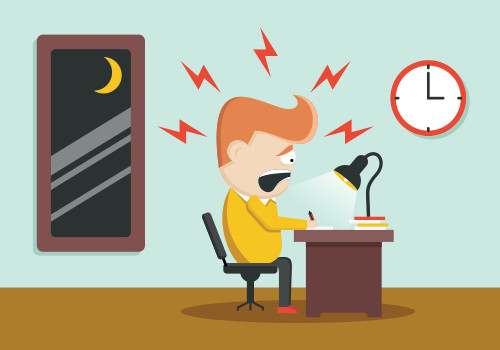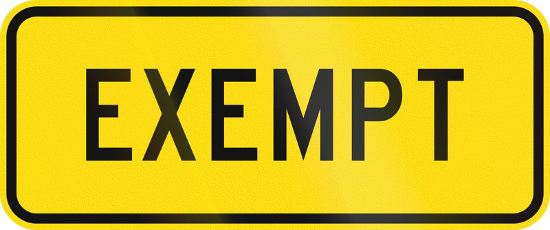
California Break Laws, What Must My Employer Provide?
24 Sep 2017
California break laws require that employers provide non-exempt employees with rest periods and meal periods during the workday. These laws have been implemented to prevent employees from working long hours in poor working conditions. They provide that employees are entitled to a 10-minute net rest break for every 4 hours of work (or major fraction thereof) they perform in a workday, and a 30-minute lunch break if they worked more than 5 hours in a day.
Employers who require that their employees work through meal and rest periods, or deny them, must pay employees 1 hour of extra pay as compensation for each day a violation occurs. This can add up over a short duration of time if violations continue unabated. A more detailed analysis of the subject is provided below.
Meal Periods
Although some exceptions exist, employers must provide an employee who works more than 5 hours in a day a meal break of at least thirty minutes. A second 30-minute lunch must be provided if the employee has worked more than 10 hours in a day. The first meal period must be scheduled at any time within the first 5 hours of the shift. If a second meal break is required, then it must be scheduled before the 10th hour. The following rules also apply also apply with respect to California lunch law:

1.) Unlike rest breaks, lunch breaks are unpaid.
2.) Employees must be relieved of all duty during their meal breaks (they must be work-free), and employers must relinquish total control over their employees. If they do not relinquish control, they are considered “on duty” and the meal period is considered as paid time worked.
Therefore, although in most industries it is common practice for employees to eat at their desks while they work, it is not permitted in the eyes of the law. If a violation occurs, then the employees must be paid a premium (1 hour of additional pay).
3.) Employees must be permitted to leave the work premises during their lunch, if they are not permitted, then the lunch is considered “on duty” and it is counted as time worked.
4.) Employees who work 6 hours or less in a day may agree to waive their meal breaks. If they worked no more than 12 hours in a day, they can agree to waive only their second lunch break (not their first).
Rest Periods

Employees are entitled to a ten-minute rest period for every 4-hours of work or major fraction thereof. These rest periods are to be taken in the middle of each 4-hour period insofar as practicable. Rest breaks do not need be provided to employees who work a total of less than 3.5 hours in a day. The following rules also apply:
1.) Unlike lunch breaks, rest breaks are paid, they are counted as time worked, and employers may not deduct wages for employees taking them.
2.) They must be work free. In fact, the recent California Supreme Court decision of Augustus v. ABM Security Services, Inc. established that rest periods must be off duty, and that employers must relinquish all control over how employees spend their break time. In its opinion, the Court ruled that “on call” breaks are not permitted. The court held that a security firm that required its guards to keep their pagers and radio phones on during rest periods failed to provide them in accordance with California labor law.
The Supreme Court, reversed the Court of Appeal, and instead sided with a lower trial court which had previously awarded $90 million to the security guards that had sued the security firm. To sum this up, an employer may not require its employees to carry cell phones, radios, pagers, and remain on call to respond while on a break. If it does, its employees are not considered to be relieved of all duty, and the employer is responsible for an extra hour of premium pay for violating the law (further discussed below).
3.) They cannot be waived by agreement.
Extra Pay for Violations
Employers who fail to provide a code compliant meal or rest period must pay the employee an additional hour of pay at the employee’s regular rate of pay as a “premium.” The total amount of premium pay is capped at a maximum of two hours (one for meal periods and the other for rest periods). Additional penalties may also be available. In particular, if an employee is illegally denied rest or meal periods during the course of the employment relationship, and was subsequently fired, the employee may be owed waiting time penalties.
Employees Cannot Game Their Employers
Pursuant to the California Supreme Court’s decision in Brinker Restaurant Corp v. Superior Ct., established that employers do not need to police the workplace to “ensure” that every lunch break is work free. As long as employers relieve employee of all duty, they are not liable for paying premiums even if the employee voluntarily decides to work. Nevertheless, employers cannot deter or discourage employees from taking lunch breaks. However, if the employer knew or should have known the employee was working during a meal period the employer will be liable to pay the regular or overtime wages for the time worked.
Why Do Employers Violate These Laws?
For most large companies that violate these laws, it is more than simply carelessness or bad HR practices, it is a calculated financial decision to save money at the expense of their workers. In reality, most serial offenders actually end up getting away scot-free simply because their workers don’t know their rights
Most recently, a jury in San Diego hit Apple with a hefty $2 million-dollar verdict in a class action lawsuit on the grounds that Apple had violated labor laws by cheating its retail workers out of breaks. According to the Complaint, “[Apple’s] meal period policy caused Plaintiffs to work over five straight hours without being afforded an opportunity to take a meal period.” Illegal employment practices such as the one alleged in this lawsuit exist throughout companies both large and small, and it is crucial that workers understand their rights so they can help put a stop to them.
Statute of Limitations For Bringing a Claim
According to the California Supreme Court, in the matter of Murphy v. Kenneth Cole Productions, Inc., the additional hour of pay is a premium wage, not a penalty against the employer. Therefore, the applicable statute of limitations is 3 years under CCP § 338(a), rather than the 1-year which govern penalties (CCP § 340).
How Do I Bring a Claim?
Here is the deal: exceptions apply, and you should consult with a qualified labor attorney in California before pursuing a claim. Most provide free consultations and work on a contingency fee basis. You can learn more about our firm’s employment lawyer here. Sometimes claims can even be settled without filing an actual lawsuit. In the alternative, if you are feeling brave, and prefer to do all the leg work yourself, you can file a wage claim with labor board without the need of a lawyer. You should consult with the labor board regarding the length of time it will take for your case to be heard because they can be backed up. Many DLSE offices are backed up one year or even more.
What If My Employer Retaliates Against Me?

Your employer may not discharge, discriminate, or retaliate against you for filing a complaint with the Labor Commissioner, testifying in a related proceedings, or for making a written or oral complaint to your employer stating that you are owed wages. (See Lab.C. § 98.6). If your employer has retaliated against you, then you may be entitled to reinstatement and reimbursement for lost wages and other employment benefits.
Furthermore, Labor Code § 98.6 states that “[a]ny employer who willfully refuses to hire, promote, or otherwise restore an employee or former employee who has been determined to be eligible for rehiring or promotion by a grievance procedure, arbitration, or hearing authorized by law, is guilty of a misdemeanor.” The statute also provides that any employer who retaliates against an employee is subject to a civil penalty of up to $10,000 per employee for each violation, which is to be awarded to the employee.

